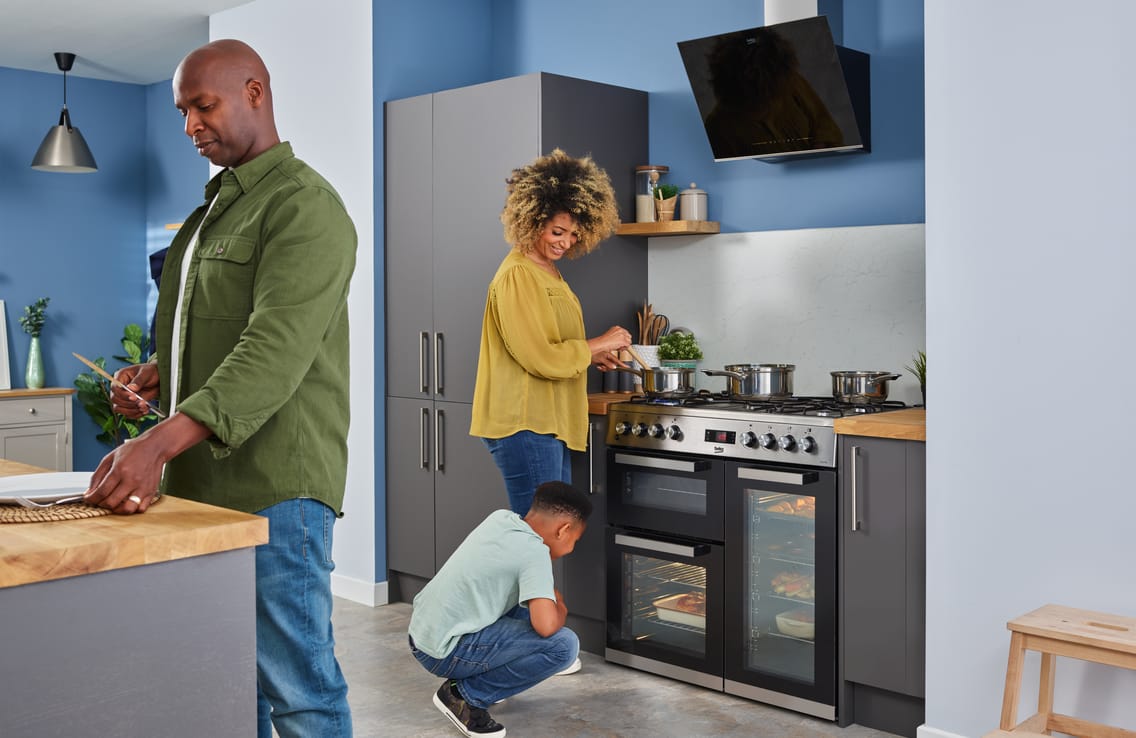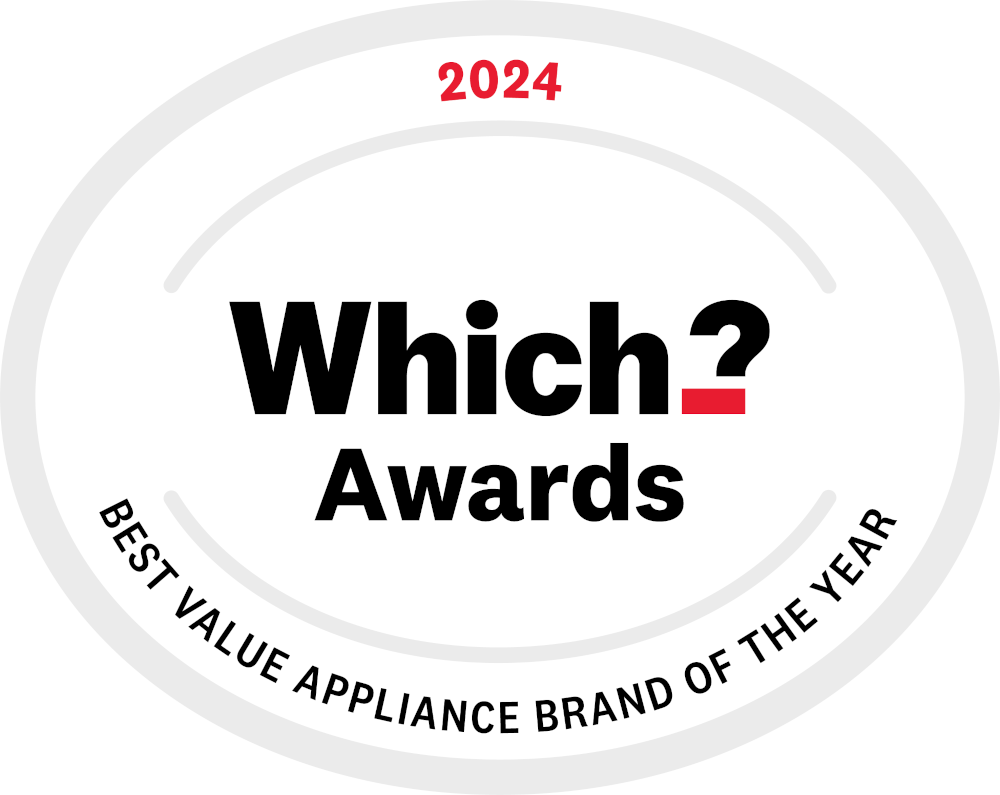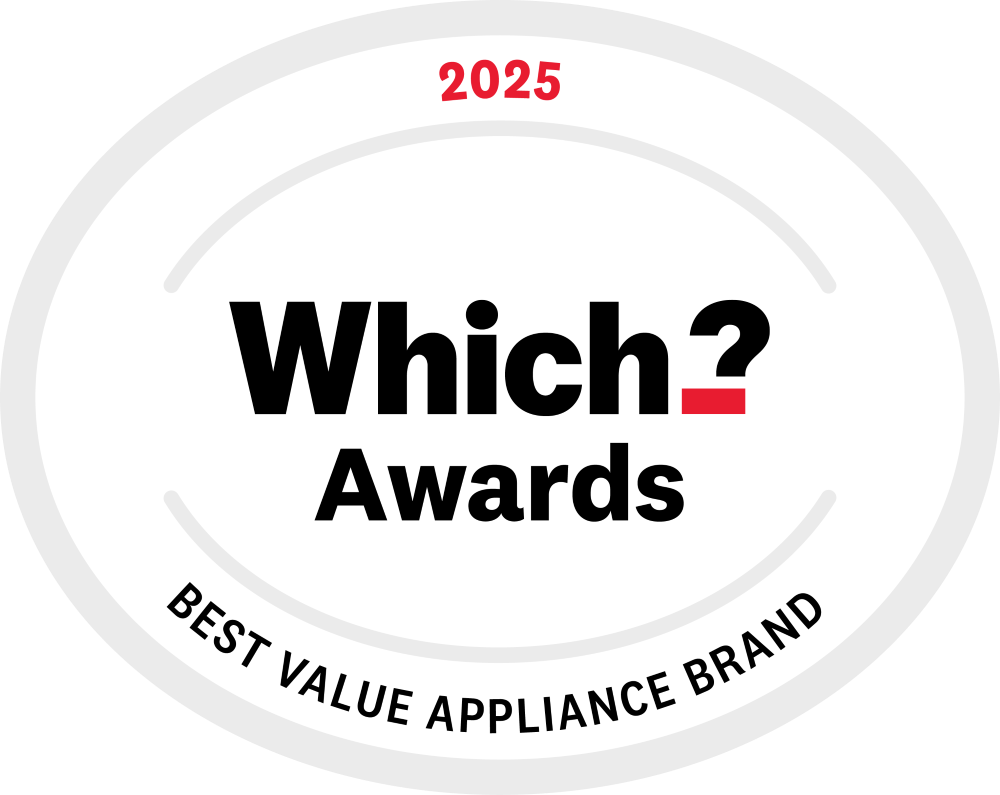How Much Do Range Cookers Cost to Run?

When deciding whether to invest in a range cooker, it's important to consider the running costs as a key factor. Range cookers typically come with a higher initial price tag and require ample kitchen space, making it essential to evaluate whether the significant investment is worth it for your needs.
Knowing exactly how much it costs to run a range cooker is a significant consideration for a consumer, especially if you are aiming to budget in the long-term – but giving the specific costing details can be hard, due to circumstances such as fluctuations in energy prices, for example.
Beyond the cost and size considerations associated with a range cooker, it’s important to consider your cooking habits. If you cook occasionally and prepare smaller meals, a standard oven and hob combo can save space, money, and reduce your environmental footprint. However, if you’re a culinary enthusiast who frequently hosts dinner parties, your appliance’s running costs and usage patterns will vary significantly, making a range cooker a worthwhile investment. For example, a couple who uses the range cooker for small dinners will experience lower running costs compared to an avid cook using it regularly for large meals. By factoring in both your cooking habits and the energy efficiency of different models, you can find a range cooker that not only fits your lifestyle but also aligns with your kitchen’s aesthetic.
Breakdown of Running Costs by Fuel Type
There are several factors that come into play when considering the running costs of an electric range cooker versus a gas range cooker – we take a deeper look at those factors below:

Electric Range Cooker Running Costs
Although electric range cookers are often associated with higher energy costs, this depends on the electricity rates you receive.
Modern electric cookers, particularly induction models, tend to score well in energy efficiency due to their ability to heat up quickly. The heat distribution is generally more even compared to a gas hob, resulting in a more evenly cooked meal in less time.
Additionally, range cookers have an advantage over traditional ovens, as they offer various oven options that allow you to select the cavity best suited to your needs. For example, some range cookers feature tall ovens for cooking multiple meals at once, while smaller cavities can be used for smaller portions. This flexibility enhances cooking efficiency, as you can choose the oven size that matches the meal you are preparing, saving energy in the process.
While maintenance costs are a consideration when purchasing a range cooker, electric models typically have fewer moving parts, making them easier to maintain. However, if a heating element does fail, you may face repair costs in the range of £80-£170.

Gas Range Cooker Running Costs
Using an electric cooker will typically consume fewer energy units, resulting in a lower environmental impact during its use. However, since electricity is typically more expensive than gas per unit, your overall costs may be higher. So even if an electric cooker is more efficient, the higher rates can outweigh those savings compared to gas, and there are other caveats, too.
Gas range cookers may require more regular maintenance, which is a major cost to consider before making your choice. Gas lines will also need to be checked periodically for their safety, a cost that would not be associated with electric models.
It is also worth noting that while we have discussed how gas ovens are typically less expensive to run than electric ones, the same does not apply to hobs. Induction hobs, for instance, are often significantly cheaper to operate than gas hobs due to their efficiency ratings. And since any range cooker you purchase will include both an oven and hob, it is crucial to consider all aspects of their performance and costs.
By choosing an electric range cooker, you can enjoy a cleaner, healthier kitchen environment with no harmful gas emissions. Research by Which? shows that switching from a gas hob to an induction hob significantly reduces nitrogen dioxide (NO2) levels in your home, eliminating emissions typically released by gas hobs.
Energy Efficiency and Its Impact
Energy ratings also play a major part in determining the running costs of range cookers as they give the consumer an idea of the overall efficiency of a specific appliance.
Energy efficiency labels on range cookers are rated on a scale where A+++ is defined as the most efficient, and D is the lowest efficiency rating you can expect to see. Most range cookers are A or A+ rated.
At Beko, all five range cooker models have an A rating in the UK and the EU.
Tips for Reducing Running Costs
Minimising your energy consumption and selecting a cost-effective model is one of the most important things to ponder before committing to a purchase.
All Beko range cookers offer the flexibility of multiple oven cavities, such as tall ovens for cooking multiple meals at once, or smaller cavities for preparing smaller portions, which can help conserve energy. Additionally, only preheat the oven when necessary and try to avoid opening the door too frequently, as this can cause heat loss and increase cooking time.
Other general cost and energy-saving tips are using a timer to avoid overcooking, planning meals that can be cooked alongside each other due to their need for a similar temperature, and using the range cooker functions correctly.
It is also important to consider the benefits of an induction hob due to their ability to heat quickly and use less energy overall, benefiting the overall efficiency of the range cooker.
With that in mind, the Beko 90cm Double Oven Range Cooker with 5 Zone Induction Hob combines the cost-effectiveness of an induction hob, and convenience of an electric oven, making it a versatile option for modern kitchens.
Factors Influencing Cost Variations
When assessing the running costs of a range cooker there are several factors that can impact on the overall costs associated with the appliance.
First, it is essential that the consumer appropriately plans the space in which the ranger cooker will fit, and take into consideration all dimensions, including clearance. Even if you do have the space for a large cooker you need to consider whether you will utilise its size, or whether a smaller, more energy-efficient appliance would be of more use.
Although gas range cookers are typically more affordable to operate, we recommend an electric cooker with an induction hob for the best balance of performance, efficiency, and convenience. Induction technology delivers precise, responsive cooking with faster heat-up times, while the electric ovens ensure even baking and roasting. This combination offers superior energy efficiency, cleaner indoor air, and modern features that enhance your cooking experience.
How Much Do Range Cookers Cost to Run FAQs
How do energy ratings impact running costs for a range cooker?
Higher energy ratings, such as A+ or A, mean an appliance has been marked as having great efficiency, and will ultimately lead to lower energy bills over time.
Does the size of the range cooker affect running costs?
Yes, larger range cookers tend to consume more energy due to their increased capacity. However, the versatility of a range cooker allows consumers to choose the most suitable oven cavity for the meal they’re preparing, helping to improve efficiency and minimise energy use.
Are there ways to reduce energy consumption when using a range cooker?
There are various ways to reduce energy consumption as previously outlined in this article, but most importantly you should consider factors such as energy ratings, cooking technology like induction, and the range cooker size that suits your needs.
Did we answer your question?
We are so sorry we were unable to answer your question. You might be able to find the answer you are looking for in the ‘Related Questions’ below. If your query is still unanswered, please head over to our Contact Us page for further assistance.
Search FAQ’s
Search or browse our frequently asked questions to find the answer to your query.




